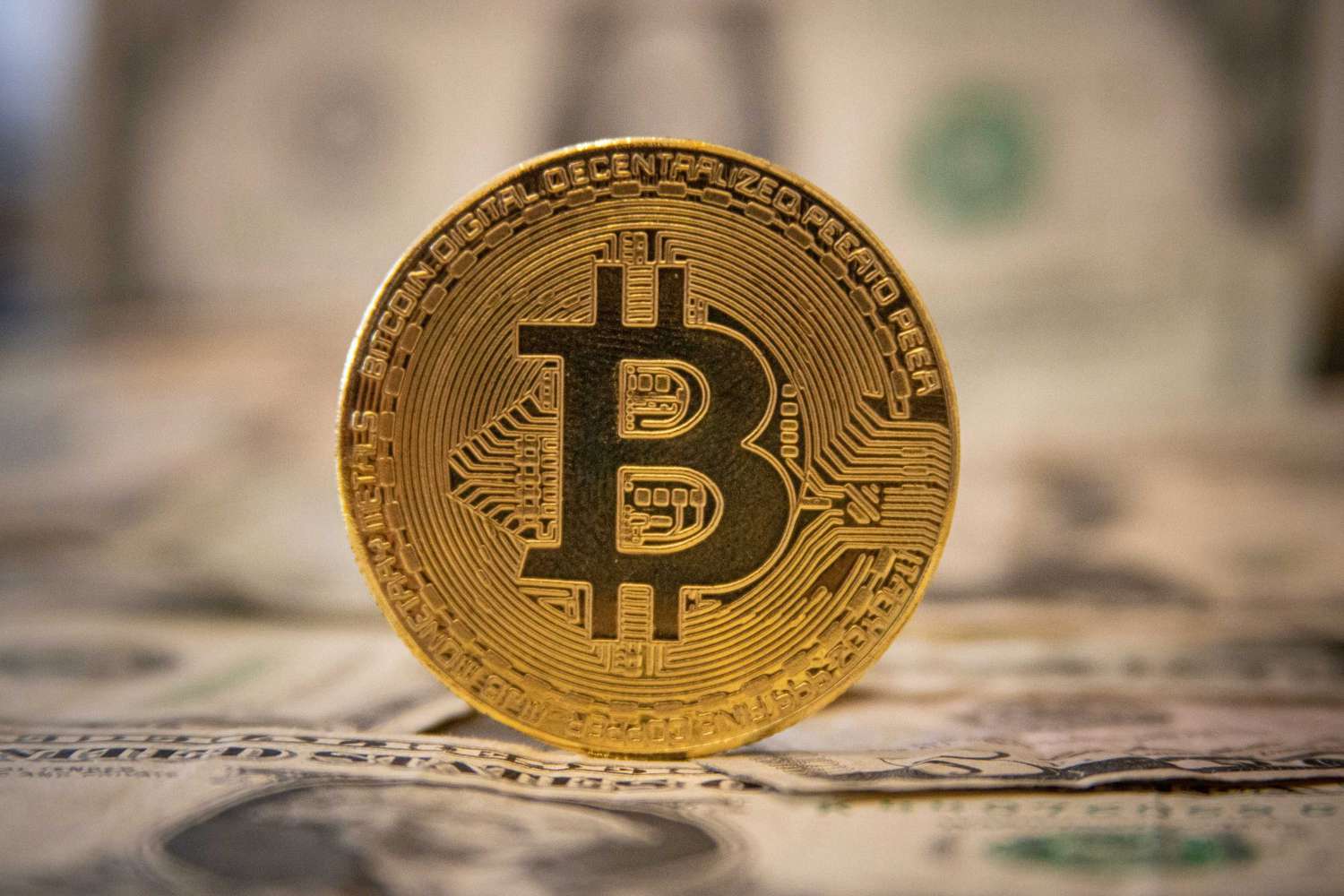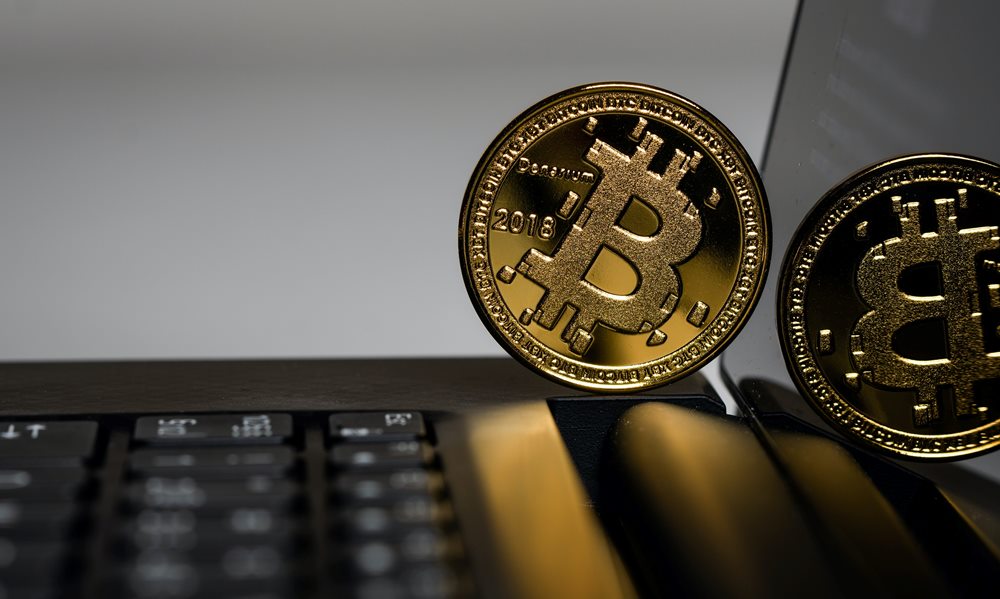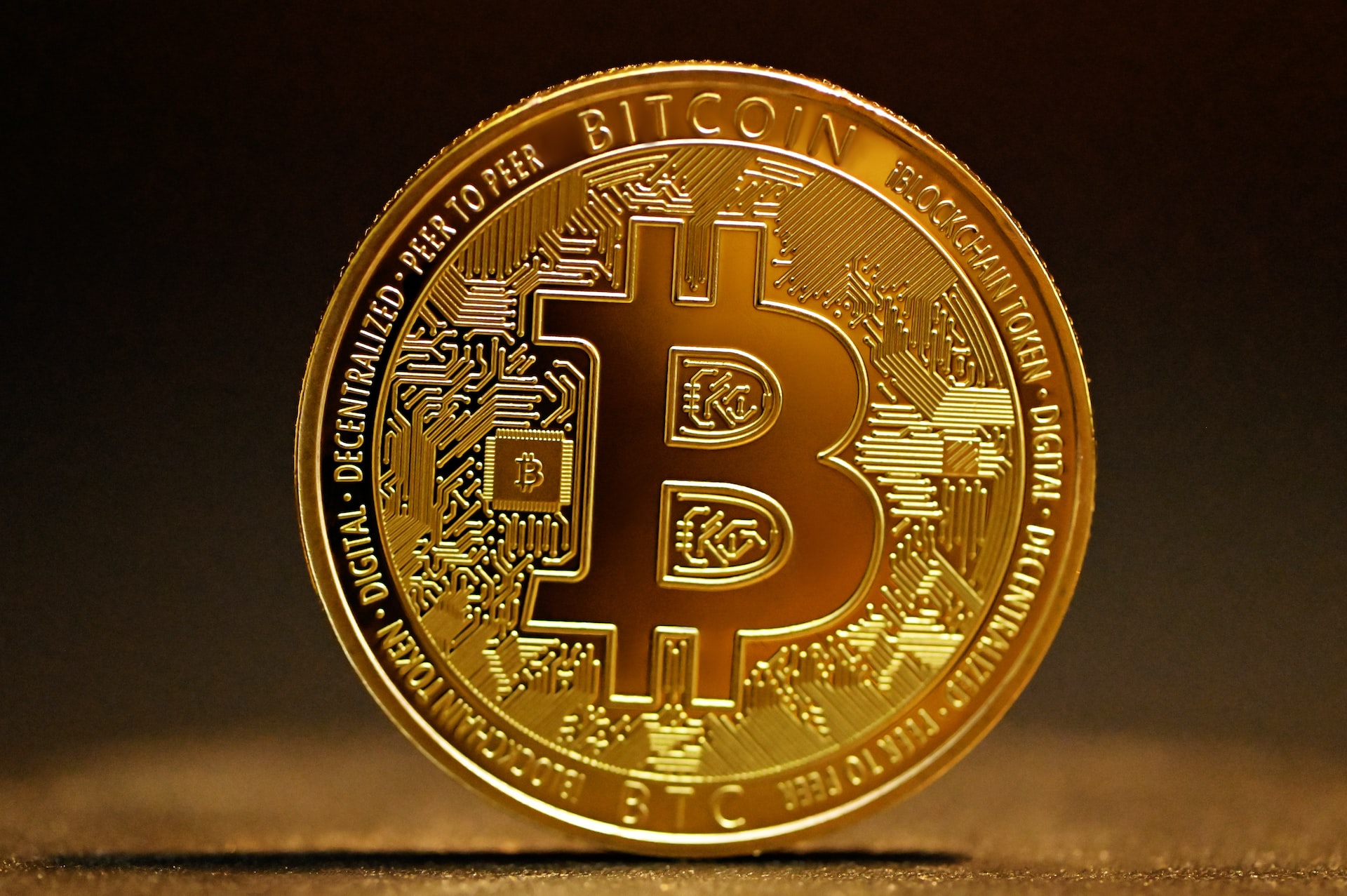Bitcoin, the world's first decentralized digital currency, has revolutionized the way we think about moneyand finance. It has enabled people to transfer value across the globe without the need for intermediaries like banks or payment processors. In this article, we will talk about what is tainted bitcoin?
However, the anonymity and lack of regulation in the Bitcoinnetwork have given rise to the concept of "tainted" bitcoins. These are bitcoins that have been used in illicit activities like hacking, moneylaundering, or drug trafficking, and can pose a risk to businesses that accept them as payment.
What Is Tainted Bitcoin?
Tainted Bitcoinrefers to bitcoins that have been involved in illegal or illicit activities such as hacking, money laundering, drug trafficking, or funding terrorist activities. These bitcoins are often associated with criminal organizations and can pose a risk to businesses that accept them as payment.
Tainted bitcoins may be subject to seizure by law enforcement, and some exchanges and payment processors may refuse to accept them. To avoid accepting tainted bitcoins, businesses should implement strict KYC policies, monitor transactions, and use trusted exchanges and payment processors.
How Are Bitcoins Tainted?
Bitcoins can become tainted when they are used in connection with illegal or illicit activities. Criminals can use bitcoins to facilitate a range of illegal activities, such as hacking, money laundering, drug trafficking, and financing terrorism. When bitcoins are involved in these activities, they can be traced and identified using blockchain analysis tools, making them difficult to use or sell. Here are some more detailed explanations of how bitcoins can become tainted:
- Hacking and Theft- Hackers can steal bitcoins from individuals or businesses, making those bitcoins tainted. Hackers may use malware or phishing scams to gain access to private keys or seed phrases, which are used to access and transfer bitcoins. Once they have stolen bitcoins, hackers can then use them to make purchases or transfer them to other wallets.
- Money Laundering- Criminals can use bitcoins to launder money by transferring them through multiple wallets or exchanges to obscure their origin and ownership. They may use mixing services that shuffle bitcoins from different sources to make them more difficult to trace. Criminals may also use "tumbling" services that mix their bitcoins with other people's bitcoins to further obscure their origins.
- Drug Trafficking- Bitcoins can be used to buy and sell illegal drugs on dark web marketplaces. Criminals can use bitcoins to purchase drugs anonymously and then have them shipped to a physical address. Since the transaction is made using bitcoins, it is difficult to trace and identify the parties involved.
- Financing Terrorism- Bitcoins can be used to finance terrorism and other criminal activities. Criminals may use bitcoins to transfer funds to other individuals or groups without being traced. Since bitcoins are decentralized and not subject to government control, they can be used to bypass traditional banking systems and transfer funds across borders.
When bitcoins are involved in illegal or illicit activities, they can become tainted and pose a risk to legitimate businesses and individuals. To protect against the risks of tainted bitcoins, businesses should implement strict KYC policies to verify the identity of customers and monitor transactions for suspicious activity. They should also use trusted exchanges and payment processors that have strict anti-money laundering policies in place.
The Risks Of Tainted Bitcoins
Tainted bitcoins can pose a range of risks to businesses and individuals who accept them as payment or hold them as an investment. Here are some of the risks associated with tainted bitcoins:
- Legal Risks- Tainted bitcoins may be subject to seizure by law enforcement agencies, particularly if they are found to be involved in illegal or illicit activities. If a businessaccepts tainted bitcoins as payment, they may be subject to fines or legal action, even if they were not aware that the bitcoins were tainted.
- Reputational Risks- Accepting tainted bitcoins can damage the reputation of a businessor individual. Customers may view the business as being associated with criminal activity, which can lead to a loss of trust and a decline in sales.
- Financial Risks- Tainted bitcoins may be difficult to sell or exchange, particularly if they are subject to seizure by law enforcement agencies. This can result in financial losses for businesses or individuals who hold tainted bitcoins as an investment.
- Regulatory Risks- Businesses that accept bitcoins as payment may be subject to regulatory scrutiny, particularly if they are found to be accepting tainted bitcoins. This can result in fines or other penalties, as well as damage to the business's reputation.
Can You Discover If You Have Tainted Bitcoin?
Yes, it is possible to discover if you have tainted Bitcoin by conducting a blockchain analysis. Blockchain analysis is a process of analyzing the blockchain to identify patterns and trends in Bitcoin transactions. This analysis can reveal the history of Bitcoin transactions associated with a particular address or wallet, including any tainted bitcoins that may have been received.
There are several blockchain analysis tools and services available that can help to identify whether or not a particular address or wallet has received tainted bitcoins. These tools can provide detailed information about the transaction history associated with a particular address or wallet, including any known connections to criminal activity or other illicit transactions.
If you are concerned that you may have received tainted bitcoins, it is recommended that you use a reputable blockchain analysis tool or service to conduct an analysis of your Bitcoin addresses or wallets. This analysis can help you to identify any potential risks associated with your Bitcoin transactions and take steps to mitigate these risks.
It is important to note, however, that blockchain analysis is not always perfect and may not always be able to identify tainted bitcoins. Criminals may use techniques such as mixing services and tumblers to obscure the origin of their bitcoins and make them difficult to trace. Therefore, it is important to take additional precautions, such as those mentioned in previous answers, to prevent the acceptance of tainted bitcoins in the first place.
Can Tainted Bitcoin Be Traced?
Yes, tainted bitcoins can be traced to their origin through blockchain analysis. Blockchain analysis refers to the process of analyzing the blockchain to identify patterns and trends in Bitcoin transactions. This analysis can reveal the origin of tainted bitcoins and can be used to identify the source of funds for criminal activity.
Blockchain analysis works by tracing the flow of bitcoins from one wallet to another. Each Bitcoin transaction is recorded on the blockchain, which is a public ledger of all Bitcoin transactions. The blockchain contains information about the sending address, receiving address, and amount of each transaction.
By analyzing this information, blockchain analysts can identify patterns in the flow of bitcoins and can trace them back to their origin. This can be used to identify the source of tainted bitcoins and can help law enforcement agencies to investigate and prosecute criminal activity.
However, it is important to note that blockchain analysis is not always perfect and may not always be able to trace tainted bitcoins to their origin. Criminals may use techniques such as mixing services and tumblers to obscure the origin of their bitcoins and make them difficult to trace. Therefore, it is important to take additional precautions, such as those mentioned in the previous answer, to prevent the acceptance of tainted bitcoins in the first place.
How Do You Know If A Bitcoin Is Tainted?
It can be difficult to know if a bitcoin is tainted, as the history of bitcoin transactions is recorded on the blockchain and can be difficult to trace. However, there are some signs that may indicate that a bitcoin is tainted.
One sign that a Bitcoin may be tainted is if it has been associated with known criminal activity or illicit transactions. For example, if a Bitcoin address has been linked to a dark web marketplace, it may be considered tainted.
Another sign that a Bitcoin may be tainted is if it has been involved in a high-profile hack or theft. For example, bitcoins that were stolen in the Mt. Gox hack or the Bitfinex hack may be considered tainted.
Additionally, blockchain analysis tools and services can help to identify whether or not a particular bitcoin is tainted. These tools can provide information about the transaction history associated with a particular Bitcoin address or wallet, including any known connections to criminal activity or other illicit transactions.
If you are concerned that a bitcoin you have received may be tainted, it is recommended that you conduct a blockchain analysis to identify any potential risks associated with the transaction. Additionally, it is important to implement strict anti-money laundering policies and take precautions to prevent the acceptance of tainted bitcoins, in order to protect yourself and your business from legal, reputational, and financial risks.
How To Avoid Tainted Bitcoins?
To avoid tainted bitcoins, businesses and individuals should take several precautions:
- Implement KYC Policies- Implementing a know-your-customer (KYC) policy can help to verify the identity of customers and prevent the acceptance of tainted bitcoins. KYC policies may include requiring customers to provide identification documents and conducting background checks.
- Monitor Transactions- Monitoring transactions for suspicious activity can help to identify and prevent the acceptance of tainted bitcoins. This may include monitoring transaction patterns, transaction sizes, and transaction sources.
- Use Trusted Exchanges- Using trusted exchanges and payment processors that have strict anti-money laundering policies in place can help to prevent the acceptance of tainted bitcoins. These exchanges and payment processors may use blockchain analysis tools and other technologies to identify and prevent the use of tainted bitcoins.
- Conduct Due Diligence- Conducting due diligence on customers and transactions can help to prevent the acceptance of tainted bitcoins. This may include researching the source of funds, identifying potential red flags, and conducting background checks on customers and transaction partners.
- Educate Employees- Educating employees about the risks of tainted bitcoins can help to prevent the acceptance of these bitcoins. Employees should be trained on how toidentify suspicious transactions and how to respond to potential red flags.
By taking these precautions, businesses and individuals can protect themselves from the risks associated with tainted bitcoins and maintain the integrity of their business operations.
Does Bitcoin Remain Tainted Forever?
In general, tainted bitcoins can remain tainted forever, as their history is recorded on the blockchain and can be traced back to their origin. However, there are some cases where tainted bitcoins can be "cleaned" and become untainted.
One way to clean tainted bitcoins is to use a Bitcoin mixer or tumbler. These services mix the tainted bitcoins with other bitcoins in order to make it difficult to trace the origin of the tainted bitcoins. After the mixing process, the bitcoins may no longer be considered tainted.
However, using a Bitcoin mixer or tumbler to clean tainted bitcoins is illegal in many jurisdictions, as it is considered a form of money laundering. Furthermore, using these services does not guarantee that the tainted bitcoins will be completely cleaned, as blockchain analysis techniques are constantly improving.
Therefore, it is generally recommended that businesses and individuals avoid accepting tainted bitcoins, as they can pose legal, reputational, and financial risks. By implementing strict anti-money laundering policies and taking precautions to prevent the acceptance of tainted bitcoins, businesses, and individuals can protect themselves from these risks and maintain the integrity of their business operations.
Obligations To Act On Tainted Coins
If you discover that you have received tainted bitcoins, you may have legal and ethical obligations to take action to prevent the spread of these coins.
From a legal perspective, if you are a business operating in a regulated industry such as finance or cryptocurrency, you may be subject to anti-money laundering (AML) and know-your-customer (KYC) regulations. These regulations require businesses to conduct due diligence on their customers and transactions to prevent money laundering and other illicit activities. If you receive tainted bitcoins, you may be required by law to report these transactions to the relevant authorities and take steps to prevent the spread of these coins.
From an ethical perspective, if you become aware that you have received tainted bitcoins, you may have a moral obligation to take action to prevent the spread of these coins. This may include reporting the transaction to law enforcement or refusing to accept the tainted coins in the first place.
In general, the appropriate action to take will depend on the specific circumstances of the transaction and the applicable laws and regulations in your jurisdiction. It is important to consult with legal and regulatory experts to understand your obligations and take appropriate steps to comply with these requirements.
People Also Ask
What Is Meant By A Tainted Bitcoin?
A tainted Bitcoin is one that has been involved in illegal or illicit activities, such as hacking, money laundering, drug trafficking, or funding terrorist activities.
Can You Sell Tainted Bitcoin?
Yes, it is possible to sell tainted Bitcoins, but they may be subject to seizure by law enforcement, and some exchanges and payment processors may refuse to accept them.
What Happens To Tainted Bitcoin?
Tainted Bitcoins may be seized by law enforcement, and some exchanges and payment processors may refuse to accept them. This can make them difficult to convert into fiat currency, and they may become worthless.
Conclusion
Tainted bitcoins are a growing concern for businesses that operate in the Bitcoin network. They can be linked to criminal activities and pose a risk of seizure by law enforcement. With the right precautions in place, businesses can protect themselves from the risks associated with tainted bitcoins and continue to operate safely in the Bitcoin network.


